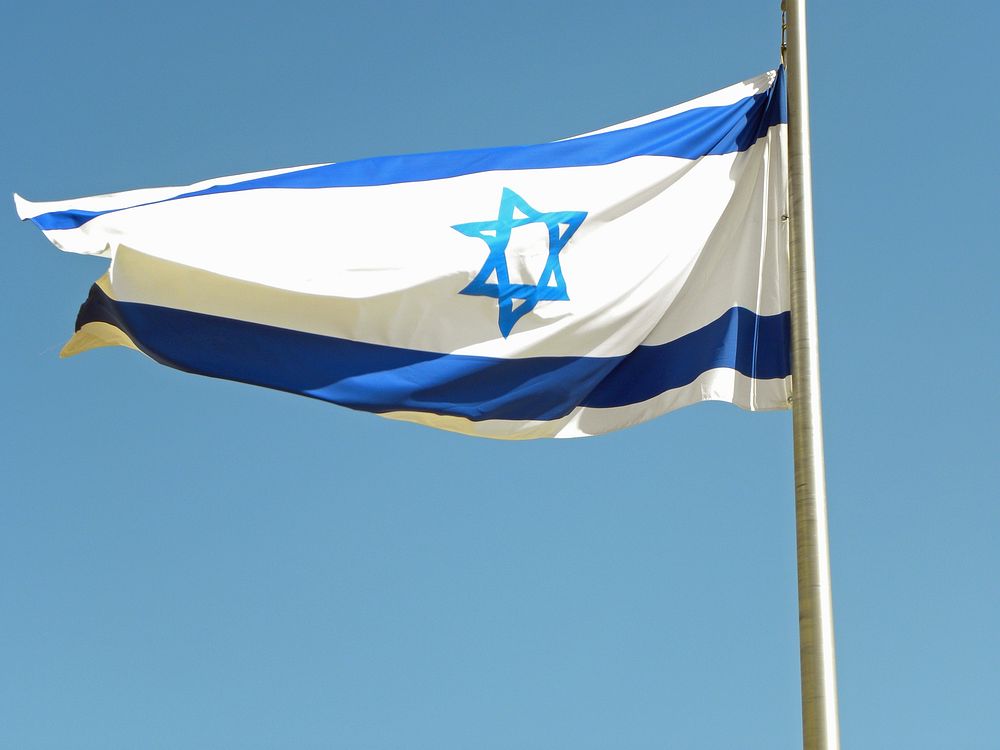What Flag Do You Choose to Fly?
I have been thinking a lot about flags recently.
It may be because of all the discussion about Supreme Court Justice Samuel Alito’s wife hoisting at their home an upside down American flag, which is recognized as a symbol of distress.
Among the issues raised by the raising of the flag is whether or not it was a political or a personal statement; whether or not it was appropriate for Mrs. Alito to do so; whether or not she should be allowed to express her opinion; whether or not the Justice knew what his wife had done; whether or not he sanctioned it; and whether or not in light of all these factors, he needs to recuse himself from participating in any cases brought before the court that have to do with President Trump.
In other words, precisely the kind of story that can supply fodder for talk shows to debate for countless hours.
I find it especially ironic that in the midst of all this discussion about the flag she flew, yesterday, June 14th was Flag Day.
Flag Day celebrates the anniversary of the adoption of the Stars and Stripes as the official flag of the United States by the Continental Congress on June 14, 1777. In 1916, President Woodrow Wilson issued a proclamation establishing June 14 as Flag Day. But it wasn’t until 1949, when President Truman signed an Act of Congress that June 14 was officially recognized as National Flag Day. The purpose of designating a day is so Americans will reflect on the values and history associated with the flag.
Flag Day is analogous to a minor holiday on the Jewish calendar. Kind of akin to something like Rosh Hodesh or Tu B’Av: many, but not all of us know when it occurs, but it doesn’t have any unique customs attached to it, and we don’t have to take off of work for it.
So I guess we could say this is “Flag Shabbos”.
And as luck would have it, guess what was a central feature of last week’s Torah portion? You guessed it: Flags!
The opening parasha of the Book of Numbers, BeMidbar tells how each of the twelve tribes encamped around the mishkan, the sanctuary, that was in the middle of the camp. With four sides, there were three tribes on each, and each had their own degel, their own flag, emblazoned with the symbol of the tribe.
I asked my trusty research assistant to find out why people attach significance to flags, and why they can evoke strong emotions. My assistant, (aka chatgpt) offered a number of reasons.
It suggested that flags are significant because they offer a visual symbol of a country’s history, culture, and values and explained that it can be a unifying symbol that represents the identity of a nation and that it fosters a sense of belonging and national pride. Flags can represent the dreams and goals of a nation or group, inspiring individuals to strive towards these ideals. Many flags are associated with significant historical events and can thereby evoke memories of struggles for independence, revolutions, or other pivotal moments in a nation’s history.
All of which of course, leads me to think about the flag of Israel, something which inspires and moves me every time I see it.
Although there were a number of proposals considered, the one that was accepted was first publicly displayed at the First Zionist Congress in Basel, Switzerland, in 1897. The design, proposed by David Wolffsohn, was inspired by the traditional tallit, which Wolffsohn saw as a powerful symbol of Jewish unity, identity, history and heritage. With the Magen David, the Star of David in the middle, the flag is a powerful emblem of Jewish identity and pride, symbolizing our religion and the continuity and perseverance of the Jewish people through centuries of diaspora and persecution. The two blue lines, evoke the tallis and are meant to reflect a life of purity guided by the precepts of the Jewish religion while also symbolizing the rebirth of the Jewish people in our historical homeland, and eternal connection to Eretz Yisrael, the land of Israel.
Interestingly, whereas demonstrators in America spur and scorn and even burn the American flag, anti-government demonstrators in Israel proudly wave the flag of Israel.
For many individuals, flags hold personal significance and can evoke strong emotions. They may remind people of their heritage, family history, personal identity, or important personal experiences. Displaying it can be a way to express and honor one’s personal connections to a particular community or nation.
This is illustrated by a story told by Elisha Wiesel, son of Elie Wiesel who recounts that the only time his father ever got angry with him was when he was a freshman in college and they were discussing a case before the Supreme Court about the constitutionality of burning the American flag. The younger Wiesel contended that they had the right to do so. His father scolded him, and it was the only time he said that his father ever showed anger at something he said. He told him that it was the men who carried that flag who liberated him from the concentration camp of Buchenwald. It is the symbol of the country that gave him freedom, as well as citizenship.
“Do you know,” Elisha recalls his father saying, “what this flag means to the men who fought under it? Do you know what it means to the men who fought to liberate me? Do you know what this flag means to me?” He concluded by telling him that it should be respected, not burnt.
So, the question I want to ask you today, knowing that a flag expresses one’s identity and values, that it serves as a reminder of commitment to the ideals and principles one values, the question I want to ask you today is: What is the flag you choose to salute and to fly?
What are the values that you would want to proudly proclaim as representing what you most cherish and believe in?
Just as we show respect for the flag, we show a similar modicum of respect for the Torah. We rise when it is lifted, kiss it when it is paraded through the congregation, and honor and show it kavod in many ways. And so since this year we commissioned the writing of a new Torah scroll, we thought it would be appropriate for this year’s confirmation class to dedicate a verse in our new torah.
After a robust discussion and consideration of a number of possibilities, they settled on something about studying, about education. After considering a few possibilities, they agreed that Deuteronomy 6:7, which states, “v’shinamtem leveanecha, you shall teach them to your children beshivetecha bebeitecha uv’lectehca baderekh uvshavecha uvekoomecha: You shall speak of them when you sit in your house, when you journey forth on the road, when you lie down and when you rise up.”
Since this verse is from the v’ahavta, it is one they will hear often, as it is recited twice a day: in the morning and evening prayers, on weekdays, holidays and shabbat. So whenever they hear it, they will recall this moment and the choice they made, as well as our studies and discussions. The verse is a command calling upon us to study Torah unceasingly. It means that wherever you are, whatever you do, in your home and in your daily life, at school or at work, when you are with friends or people you have just met, whatever the situation and circumstance, it is telling us that Judaism should be a part of how you live your life and the decisions you make.
When you celebrated your bar or bat mitzvah, you pledged to continue your studies. Standing before the open ark you each said, “I realize I still have much to learn about Judaism and therefore pledge to continue throughout my life to learn more about my heritage and to study its teachings — so that I will have a greater understanding and appreciation of its beauty, its wisdom and relevance. Its teachings will thereby be a guide for my path, my actions, and the decisions I make.”
And so you have been faithful to the pledge you made a few years ago.
A story is told about a Hasid who excitedly tells his rebbe that he has studied the Torah multiple times, that he has gone through the entire Torah seven times. His rebbe calmly responds that he is glad to hear this, but what is even more important is how much of the Torah has gone through him.
In other words, study the words. Become familiar with the teachings of Judaism. But then be sure to incorporate its customs, traditions and rituals, its teachings into how you live your life. For then you will fly the flag of the Jewish people with pride.





